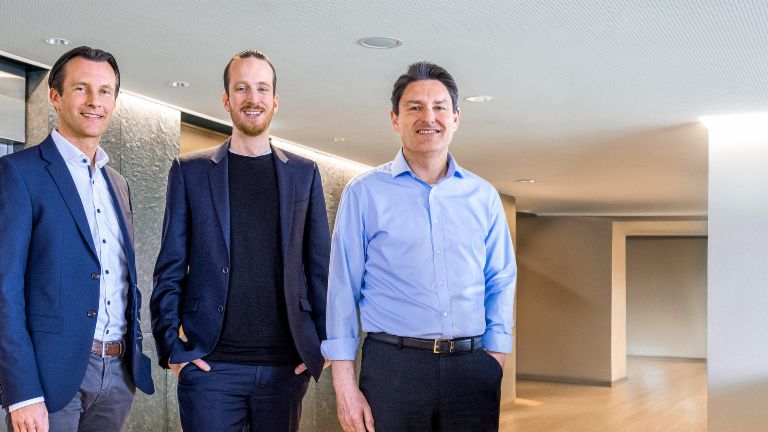Cyber security a trending issue for European companies
In matters of data security there’s still work to be done. An EOS survey shows that around half of the companies polled see data protection and cyber security as a trending issue. But only 28 percent are actively doing something about it.
- Despite statutory requirements, only 60 percent of European companies are doing something about data protection.
- And as little as 28 percent are actively engaging with cyber security issues.
- This lack of concern could lead to substantial financial losses and reputational damage.
It is now more than a year since the General Data Protection Regulation (GDPR) came into force in Europe. The commotion and flurry of activity have subsided noticeably. Perhaps too much: According to the latest EOS survey “European Payment Practices” 2019, only 52 percent of European companies see data protection as a trending issue for the next two years. And just 60 percent are already responding to it.
The IT Trends Survey by management consultancy Capgemini comes to similar conclusions. It found that just 53 percent of companies in Germany, Austria and Switzerland have fully implemented the GDPR. Slightly more than a quarter are still working on it, and one in ten companies is actually stuck in the planning phase.
Billions lost through cyber crime
Those companies that are not acting to protect their own and customer data are being negligent and exposing themselves to a high risk due to cyber crime. This risk is also a financial one. According to management consultancy Accenture, companies worldwide are set to lose USD 5.2 trillion as a result of cyber attacks in the next five years.
We put up walls to keep attackers out and they constantly develop new techniques to break them down.
European companies are aware of the risk of data loss. According to the EOS survey, 49 percent do see cyber security as a trending issue over the next few years. But just 28 percent are already actively doing something about cyber defenses. And this is negligent. According to the European Commission, one in eight companies was affected by cyber attacks in 2016, and there were 4,000 attacks by ransomware trojans every day.
To keep pace with the threat you need to continually challenge your IT infrastructure, says Gunnar Woitack, Chief Information Security Officer at EOS: “We put up walls to keep attackers out and they constantly develop new techniques to break them down.” Woitack regularly subjects the systems at EOS to what are called penetration tests, in which hackers are engaged to scan the virtual defenses of EOS for vulnerabilities. “We take the risks very seriously and are naturally also investing a lot of money in security.”
Data breaches may also result in loss of trust
This is money well spent, because in the event of a data theft the losses are not just material. Companies like EOS, as an international financial services provider focusing on debt collection, work with highly sensitive information about their clients. What happens when these kinds of datasets get into the public domain is illustrated by cases like that of US credit reporting agency Equifax, which was the victim of one of the largest data breaches in history in 2017.

And there’s a warning for long-established companies in particular: according to German industry association Bitkom, such companies have a lot more catching up to do in matters of IT security than start-ups. You can recover from financial losses. But broken trust is hard to put back together again.
Please contact us if you would like more information.
Photo credits: Caiaimage / Getty Images, Achim Multhaupt
Explore more from EOS
The companies that certify us
We collaborate with leading organisations that validate our social commitment and maintain quality standards that make us a benchmark in the constant search for excellence and positive impact in our sector.






